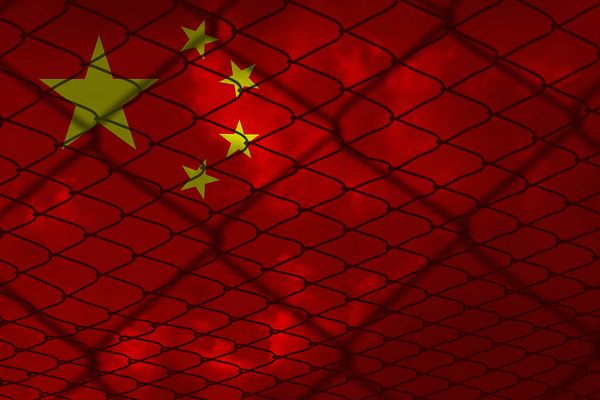China’s internal factors could destabilize the current Communist regime as the supreme leader Xi Jinping is attempting to secure an unprecedented third consecutive term as CCP Chairman at the National Party Congress this year. While the regime is desperately showing off their so-called stability, China is “outwardly strong, but inwardly weak,” says Garside Roger Garside, author of “China Coup”.
Garside, who served twice at the British Embassy in Beijing, states “ever since 2011, the regime has been spending more of its budget on internal security than it has on the military. It fears its internal enemies”.
according to Garside, a group of Communist leaders might stage an internal coup against Chinese leader Xi Jinping, and transition China to a democratic political system. “The body politic of China is terminally ill. Only a transplant can save the body politic, and the only other system on offer is competitive democracy,” Garside, a former diplomat, told The Epoch Times.
Garside argues that high-level leadership in the Chinese Communist Party (CCP), including Premier Li Keqiang, believe that Xi is taking China in a “very risky and dangerous” direction, jeopardizing their wealth and power, as well as the future of the CCP. He contends that this is the reason why they are plotting against the Chinese leader.
The author went on to explain some indications of the CCP’s vulnerability that could enable such a coup for example what the CCP did to Hong Kong is an indicator of the CCP’s weakness.
Hong Kong, a former British colony, has experienced waves of citywide protests since the region was handed over to the Chinese regime in 1997, as the CCP has incrementally rolled back the city’s freedoms and autonomy – something it had guaranteed would remain in place for 50 years after the handover.
In mid-2020, following large-scale democracy protests in the Chinese-ruled territory a year earlier, Beijing imposed the draconian national security law, which significantly stifles freedom of speech and freedom of association in the city. Scores of activists have been arrested and jailed, or have fled Hong Kong since then.
“Why did they crush Hong Kong? Because they are afraid of the idea thereof democracy and the rule of law,” he said. “They’re afraid that their own people if they see it working in Hong Kong if they see the Communist Party permitting, democracy, elections, freedom of speech, and the rule of law in Hong Kong will want it.”
Another internal factor is China’s private sector has become powerful and autonomous, according to Garside. This has been putting pressure on the CCP, causing anxiety among the country’s leadership.
“Alibaba raised $24 billion on the New York Stock Exchange; 248 other companies have raised billions of dollars out of the control of the Communist Party, beyond their capital exchange control, beyond their political control,” he noted. “Those companies can use that money to turn round and buy politicians in China, and rivals to Xi Jinping,” he added.
Since 1978, the CCP implemented a series of more liberal economic policies as part of its reform and opening-up campaign in order to survive in power, Garside said. But the regime had no intention to allow political freedom to develop in tandem.
Garside explained that in 2008 the CCP realized China’s private sector would become too powerful if the country continued its transition to a free-market economy, and thus set its sights on controlling the market.
When Xi came to power in 2013, he decided to “double down on the CCP’s totalitarian rule”, instead of restarting the liberalization of the economy, according to the author. “But here we are 10 years later, he and his closest allies clearly are afraid of the power and autonomy which the private sector has achieved,” he said.
Another factor that could empower officials to launch a coup is the declining property sector, said Garside. The regime has been relying on land sales to finance themselves for years, and now the price of land has plummeted, he observed, noting that around 25 per cent of China’s gross domestic product comes from the property sector. But now this sector is unravelling citing the growing crisis faced by Evergrande, the world’s most indebted property firm with more than $300 billion in liabilities.
The company, along with several other Chinese real estate developers, failed to meet debt interest payments in 2021. The developers were then being forced to sell their assets at lower prices. But due to a lack of buyers, Evergrande’s shares and the property market prices in general decreased significantly.
Garside further explained that while it looks like Xi holds all the power, the CCP structure has numerous “power centres” in regional and local governments. “Xi Jinping does not hold all the power. He has very astutely and skillfully centralized authority into his own hands,” said Garside.
The former diplomat argued that such a coup would probably transition China to democracy because officials are aware that the communist system is not functioning anymore and that constitutional democracy is the better alternative. “I think they would want to sustain the Communist Party as a political entity. But I think they’d want to change the system because the present system isn’t working,” he concluded.

Leave a Reply